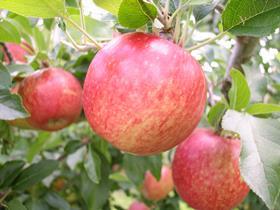
The British orchard fruit industry needs the guarantee of 11,500 workers by 2019 to avoid the potential collapse of the sector, a new report has claimed.
The study, written by John Pelham of Andersons on behalf of English Apples & Pears (EAP), claims that the failure to secure sufficient seasonal labour would be bad news for consumers, the environment, government and growers.
It found that British annual orchard fruit production – which includes apples, pears, plums, cherries, peaches, nectarines and apricots – has grown 27 per cent to 300,000 tonnes between 1997 and 2016, with much of this growth down to improved production methods and access to a mobile seasonal workforce. Some 10,300 seasonal workers were employed in the sector in 2016, with this set to rise 12 per cent to 11,500 by 2021 based on a projected 7.7 per cent rise in output.
The report said that robotic harvesting is unlikely to be commercially available within five years, and the domestic workforce will not fill the gap.
A failure to secure sufficient labour would result in a failure to meet the 2021 growth targets, a reduction in the number of UK orchard fruit growers and a reduced production and output. That would subsequently lead to greater imports.
EAP board member James Simpson, managing director at Adrian Scripps, told a press briefing at the National Fruit Show this week that growers are reporting significant decreases in the availability of labour, driven by lower exchange rates combined with workers earning more money earlier and returning home.
“If we don’t see something put in place we are looking at a very serious situation for next season,” he explained. “We need something in place before the 2018 season.”
Simpson said interviews with employees revealed that workers are non-committal about returning due to fears over a lack of continuity of work post-Brexit, adding that despite widespread advertising for local labour Scripps was only able to employ one British national out of 220 workers this season.



